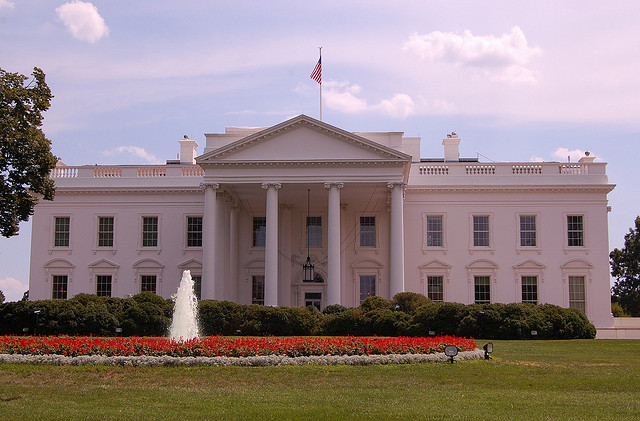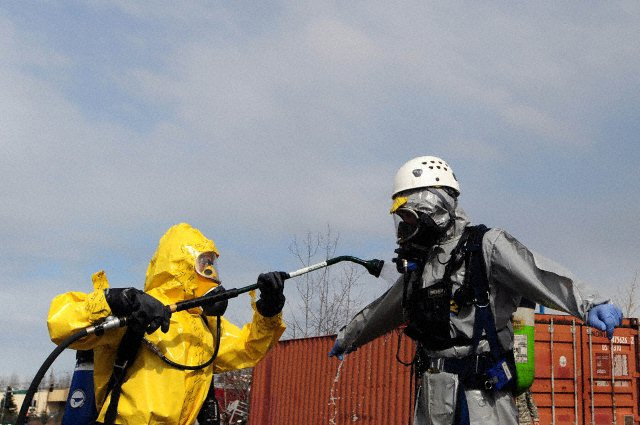On July 31, President Obama issued Executive Order (EO) Number 13673, establishing a series of reporting and procedural requirements for federal contractors, inducing them to provide “Fair Pay and Safe Workplaces” to their employees. Beginning in 2016, these new requirements will apply to contracts and subcontracts to provide more than $500,000 in services and/or non-standard goods to federal agencies. Some requirements are specific in the EO, while others will become clearer after revisions to the contracting standards codified as the Federal Acquisition Regulation (FAR).
Audit, Compliance and Risk Blog
Jon Elliott
Recent Posts
New Executive Order Pursues Labor Law Compliance By Federal Contractors
Posted by Jon Elliott on Tue, Aug 19, 2014
Tags: Corporate Governance, Business & Legal, Employer Best Practices, Health & Safety, Employee Rights, Training, Environmental risks, EHS, EEOC, Disability benefits
Anti-Discrimination Responsibilities Expanded By New Executive Order
Posted by Jon Elliott on Wed, Aug 13, 2014
On July 21, President Obama issued Executive Order (EO) Number 13672, expanding anti-discrimination responsibilities of federal agencies, federal contractors, and federal grant recipients, to cover “sexual orientation” and “gender identity.” Once implemented, employment practices in these workplaces will match private employers’ responsibilities under a growing number of state laws, and under some federal court cases interpreting Title VII of the Civil Rights Act of 1964 (Title VII). These changes are potentially very important to large numbers of lesbian, gay, bisexual, and transgender (LGBT) workers.
Tags: Corporate Governance, Business & Legal, Employer Best Practices, Employee Rights
Is your employer hiring "temp" workers this summer—to serve tourists, meet cascading production deadlines, tend crops, or maybe just to fill in while permanent workers take vacations? Most employers recognize that occupational safety and health laws throughout North America assign them an Employer's General Duty to protect their own employees from workplace hazards. Some don’t remember that this duty also applies to shared employees, and even to other employers’ employees while they’re at your workplace. This month, the US Occupational Safety and Health Administration (OSHA) is re-emphasizing ongoing efforts to ensure protections for temporary workers ("temps"), extending the Temporary Worker Initiative it started in 2013.
Tags: Corporate Governance, Business & Legal, Employer Best Practices, Health & Safety, OSHA, Employee Rights, Training
EEOC Issues New Enforcement Guidance on Pregnancy Discrimination
Posted by Jon Elliott on Wed, Jul 23, 2014
One of the many national anti-discrimination laws administered by the US Equal Employment Opportunity Commission (EEOC) is the Pregnancy Discrimination Act of 1978 (PDA). PDA prohibits discrimination against women on the basis of “pregnancy, childbirth or related medical conditions.” EEOC receives about 6,000 complaints alleging this form of sex discrimination each year, which amounts to 6-7% of all complaints it receives. Last month EEOC issued its first stand-alone Enforcement Guidance for its staff to address PDA and related issues under the Americans with Disabilities Act (ADA), superseding discussions in the agency’s general Compliance Manual.
Tags: Corporate Governance, Business & Legal, Employer Best Practices, Employee Rights, EEOC
Supreme Court Narrows EPA Authority to Regulate CO2 Emissions
Posted by Jon Elliott on Mon, Jul 21, 2014
Since the US Supreme Court affirmed in 2007 that the Clean Air Act (CAA) provides the Environmental Protection Agency (EPA) with authority to regulate carbon dioxide (CO2) and other greenhouse gases (GHGs), EPA has pursued a growing set of regulatory initiatives. In each, EPA has attempted to fit GHGs into statutory and regulatory programs originally designed for more conventional pollutants – and the entities it targets have sued the agency claiming the stretch to GHGs exceeds EPA’s authority. Each court decision has adjusted the contours of EPA’s CAA authority, legitimizing some stretches and vacating others.
Tags: Corporate Governance, Business & Legal, Environmental risks, Environmental, EHS, EPA, Greenhouse Gas, ghg
Obama Directs Federal Agencies to Enhance Workplace Flexibility
Posted by Jon Elliott on Wed, Jul 16, 2014
On June 23, President Obama issued a Presidential Memorandum to federal agencies, specifying steps they must take to enhance workplace flexibility for federal workers, and specifying timelines for the federal Office of Personnel Management (OPM) and each federal agency to complete those steps. The Memorandum establishes OPM as the hub of these activities, with assignments to create guidance, synthesize information being provided by other federal agencies, and provide ongoing inter-agency advice. The Memorandum is careful not to create any new rights for federal employees, but it is intended to ensure that agencies expand their interpretations and applications of those rights to the maximum extent feasible.
Tags: Corporate Governance, Business & Legal, Employer Best Practices, Employee Rights
Supreme Court Tweaks “Fraud on the Market” in Securities Cases
Posted by Jon Elliott on Tue, Jul 08, 2014
Section 10(b) of the Securities Exchange Act of 1934 prohibits use of “any manipulative or deceptive device” in connection with purchases or sales of securities. Since its adoption, this provision has provided SEC with an important enforcement tool. Beginning in 1975, the US Supreme Court also empowered aggrieved shareholders to use this Section to support private lawsuits against alleged violators (Blue Chip Stamps v. Manor Drug Stores). The substantive and procedural contours of this private right have continued to evolve in the subsequent four decades, as courts address arguments by plaintiffs and defendants. In 1988, the Supreme Court ruled that plaintiffs who buy or sell shares through an “efficient market” are entitled to a presumption that they relied on that market’s price, not knowing that the market was tainted by manipulative or deceptive information (Basic, Inc. v. Levinson).
Tags: Corporate Governance, Business & Legal, SEC
Chemical Facility Safety–Progress Report on the President’s Executive Order
Posted by Jon Elliott on Wed, Jul 02, 2014
Last August, President Obama issued an Executive Order (EO 13650) to agencies with responsibilities for chemical facility safety (I blogged about it here). The EO provides for a Chemical Facility Safety and Security Working Group, co-chaired by the Department of Homeland Security (DHS, which administers the Chemical Facility Anti-Terrorism Standards (CFATS) program), Environmental Protection Agency (EPA, which administers the Accidental Release Prevention (ARP) program under Clean Air Act) and Department of Labor’s Occupational Safety and Health Administration (OSHA, which administers Chemical Process Safety Management (PSM) Standard), and also including the Departments of Transportation, Justice (DOJ) and Agriculture. It directs them to work together to improve their operational coordination, and to consult with other security and environmental agencies at all levels of government, as well as the White House.
Tags: Corporate Governance, Business & Legal, Health & Safety, Training, Environmental risks, Environmental, EPA, Hazcom
Many organizations have mailrooms that receive posted mail, and packages shipped using parcel and express services. In some of these organizations, mailrooms also serve as the entry point for deliveries of goods and products by other venders. If your organization has a mailroom, it offers entry into your workplace for potentially dangerous materials, including those sent without harmful intent but also without appropriate packaging, and those sent in order to harm individuals or the organization.
Responsibilities for Board of Directors’ Audit Committees
Posted by Jon Elliott on Mon, Jun 16, 2014
Boards of directors are responsible for governing their corporations. Many boards divide their work among committees that are assigned specific tasks. Standard committees include an “audit committee,” with responsibilities that may include:










